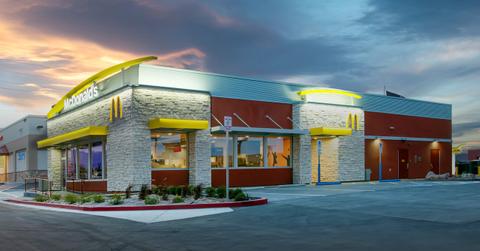California’s FAST Act — Why McDonald’s and Other Food Chains Hate It
McDonald’s is fighting a proposed bill in California targeting fast food chains. What is the FAST Act? Let's see why McDonald's isn't a fan.
Aug. 31 2022, Published 12:19 p.m. ET
California’s newly proposed FAST Act targets fast food chains in the state by suggesting a higher minimum wage. The bill’s supporters say it could quell wage theft and promote safer working conditions. However, global fast food chain McDonald’s (MCD) has a big problem with the proposed bill.
What is the FAST Act, and why is McDonald’s speaking out against it? Here’s who the California bill could help or harm.
California Senate passes FAST Act — bill awaits final approval.

Governor Gavin Newsom (D-Calif.)
On Aug. 29, the California Senate passed the FAST Act, a bill targeting fast food chains in the state. The bill aims to form a Fast Food Council within the state’s Department of Industrial Relations. This council would be made up of 10 appointed members that could impose “minimum standards on wages, working hours, and other working conditions related to the health, safety, and welfare of, and supplying the necessary cost of proper living to, fast food restaurant workers.”
The FAST Act, also known as AB 257, would impact fast food chains with 100+ locations nationwide.
The Senate made multiple changes to the bill upon its passing, so the California state Assembly must vote on or reconcile it. The bill will only reach Governor Gavin Newsom's desk if it gets approved.
McDonald’s says the FAST Act isn't fair.
Joe Erlinger, head of McDonald’s U.S., said about the FAST Act, “It imposes higher costs on one type of restaurant, while sparing another. That’s true even if those two restaurants have the same revenues and the same number of employees.”
“This lopsided, hypocritical and ill-considered legislation hurts everyone,” Erlinger adds. “California is my birth state and it’s hard to watch it earn its reputation for driving businesses out of the state.”
The bill would heavily impact McDonald’s, which hosts about 10 percent of its U.S. restaurants in California.
McDonald’s isn’t alone in its distaste for the FAST Act.
In addition to getting heat from McDonald’s, the FAST Act is garnering attention from Chick-fil-A, Chipotle (CMG), and more fast food chains.
The National Restaurant Association has also lobbied against the bill with at least $140,000 in targeted funding. President of the National Restaurant Association Michelle Korsmo said, “The FAST Act isn’t going to achieve its objective of providing a better environment for the workforce, it’s going to force the outcomes our communities don’t want to see.”
Remember, McDonald’s is a publicly traded company with a market capitalization of $186+ billion and a whole slew of shareholders to appease. In the public markets, investors view growth in a more favorable light than they do consolidation.
If the FAST Act reaches Newsom’s desk and he signs it into law, fast food workers could earn a minimum wage of $22 an hour, up from the current state standard of $15.50. Combine that with the increased popularity of earned wage access for hourly workers and a new fast food employment era may be upon us.

